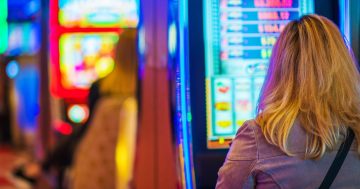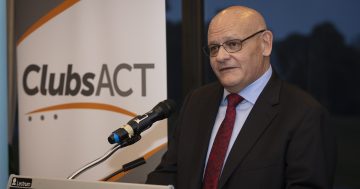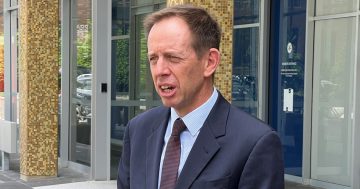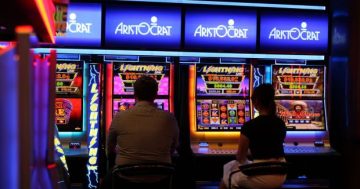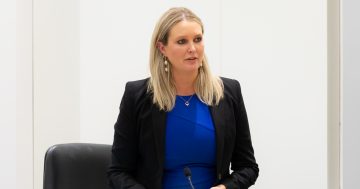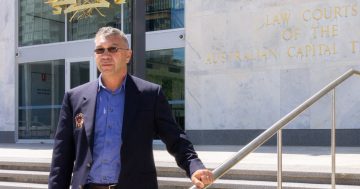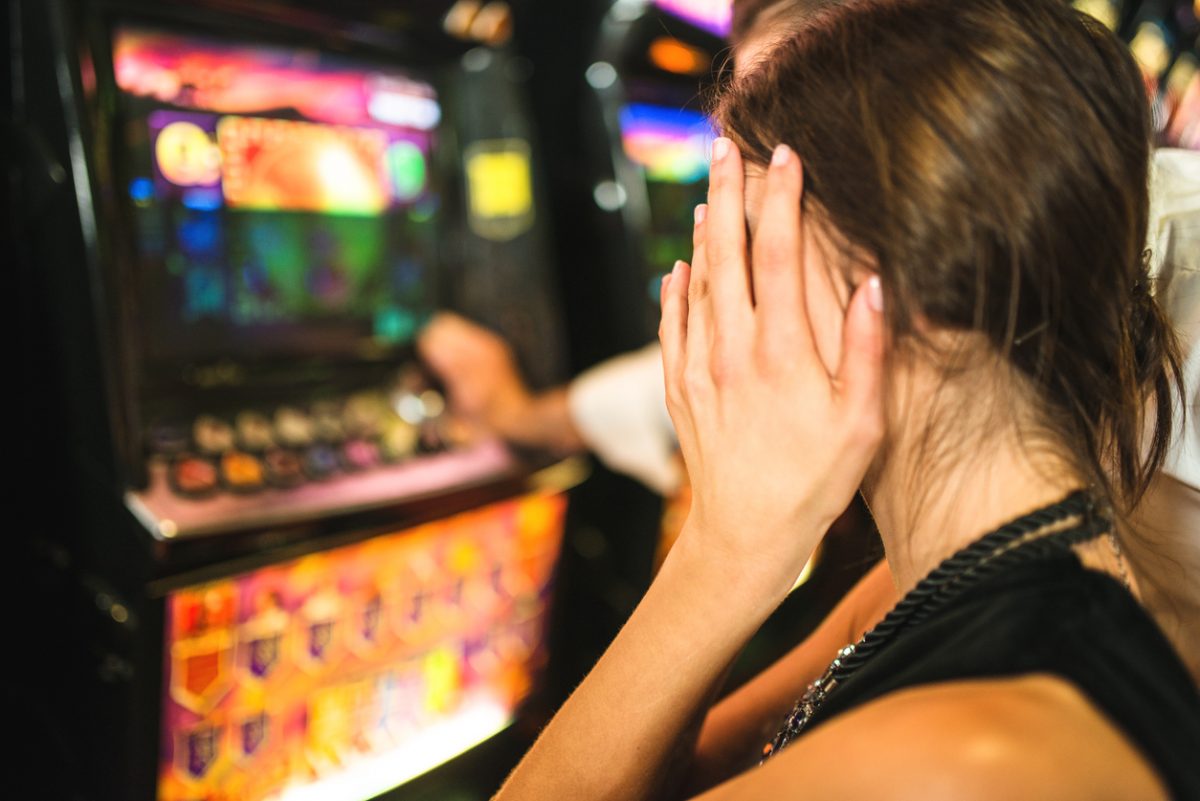
Facial recognition technology could soon be set up in gaming areas at clubs to identify patrons who have opted-in to voluntarily self-exclude from gambling. Photo: File.
Self-excluded problem gamblers could soon find themselves being picked up by facial recognition technology if they enter a poker machine or gaming area of a club.
But before it gets underway, the government has privacy concerns and questions it wants to be worked through first.
ClubsACT is ready to trial software from New Zealand-based company COMS System Limited across several member venues.
The technology would alert venue staff to people who have registered for a self-exclusion database if they enter the gaming area of a club.
Cameras would only be installed in the gaming areas.
The technology would replace the current manual process by which staff members have to identify self-excluded problem gamblers themselves. It would also mean those participating in a self-exclusion program would still be able to enter the club for dinner or drinks.
That’s not possible under the current scheme, which bans participants from premises entirely.

ClubsACT CEO Craig Shannon confirmed work would get underway with the government and the Gambling and Racing Commission before the trial of the facial recognition technology begins. Photo: Thomas Lucraft.
ClubsACT Chief Executive Officer Craig Shannon said the software would essentially be used for cross-matching patrons with their pictures if they were stored in the existing database.
But he acknowledged the finer details of how that would operate, as well as broader privacy concerns, would need to be worked through before the trial begins.
The COMS technology is already being used in some pubs and clubs in New Zealand and South Australia.
In South Australia, clubs that are authorised to operate 30 or more gaming machines must have approved facial recognition technology installed to identify barred persons who enter a gaming area.
The system has already been installed at some clubs, but Mr Shannon declined to name them at this time, preferring to wait for regulatory issues to be sorted first.
It hasn’t been turned on yet.
Mr Shannon said the technology would be different to the controversial Kmart and Bunnings facial recognition technology which is the subject of an ongoing privacy watchdog investigation.
Those retailers said the systems were needed to spot repeat shoplifters.
“[Our system] would not retain data as it pertains to anybody other than those who have opted-in. It is not there for filming and storing, only checking to see if that person matches the database,” he explained.
“We are working with the government and the Gambling and Racing Commission to ensure that any genuine concerns are addressed.”
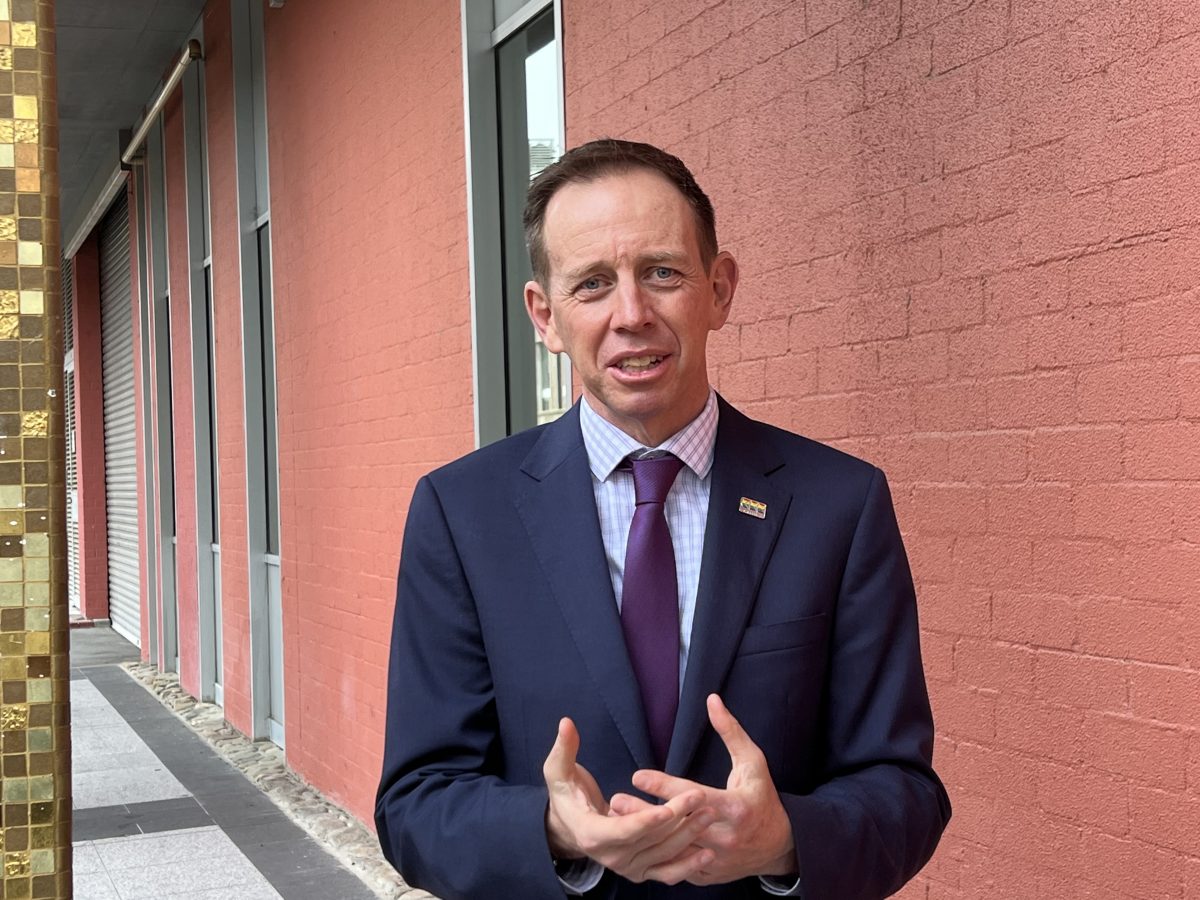
Attorney-General Shane Rattenbury said the ClubsACT proposal would need to be worked through, but he isn’t for or against it at this stage. Photo: Lottie Twyford.
At this time, the government does not yet have an official position on the technology, but Attorney-General Shane Rattenbury – who, coincidentally, is also the Minister for Gaming – stressed he wanted to see the clubs work with the Gambling and Racing Commission to address regulatory, privacy and practical issues.
“Because it’s a new technology, we need to think about whether it meets existing privacy standards. It also raises questions about the broader use of facial recognition technology,” he said.
The ACT Human Rights Act explicitly sets out the right to privacy which the Attorney-General said wouldn’t stop the trial from going ahead but would mean certain conditions would have to be satisfied.
There are no laws in the Territory that prevent the use of biometric data. However, Mr Rattenbury will soon receive a briefing on facial recognition technology from the Justice and Community Safety Directorate.
He also raised concerns about patron consent.
“It’s fine for people in the [self-exclusion] scheme because they have signed up for it. But what about those who didn’t? They will also be passing through the cameras,” Mr Rattenbury said.
With his Gaming Minister hat on, Mr Rattenbury said he could see some positive benefits from the clubs’ proposal if it helped improve the self-exclusion scheme.
“An attractive side to this proposition is that you can self-exclude from gaming but still go to the club,” he said.
Mr Rattenbury will soon receive an analysis of how the self-exclusion scheme is currently working.
Ahead of receiving this, he conceded the scheme could be better.













